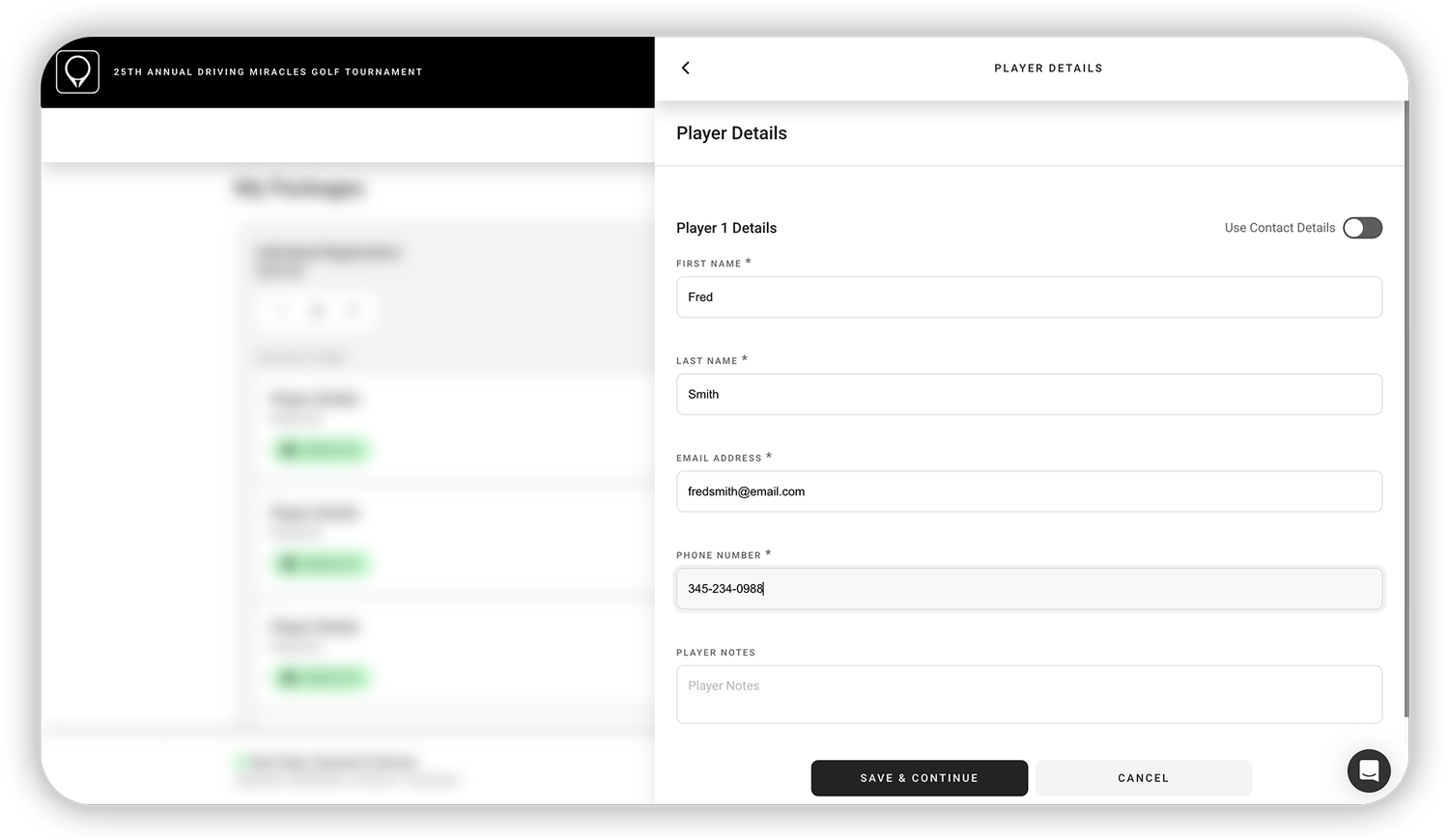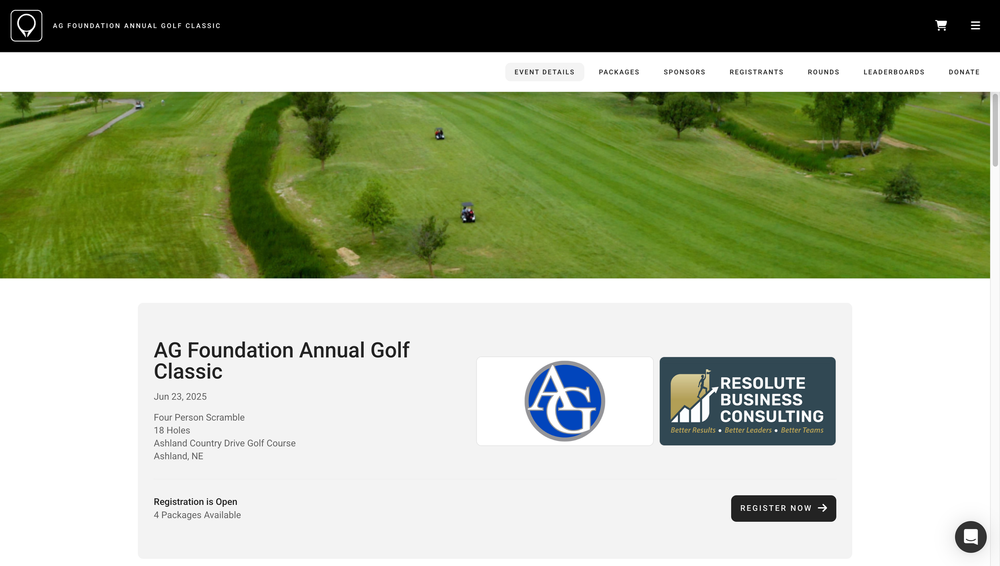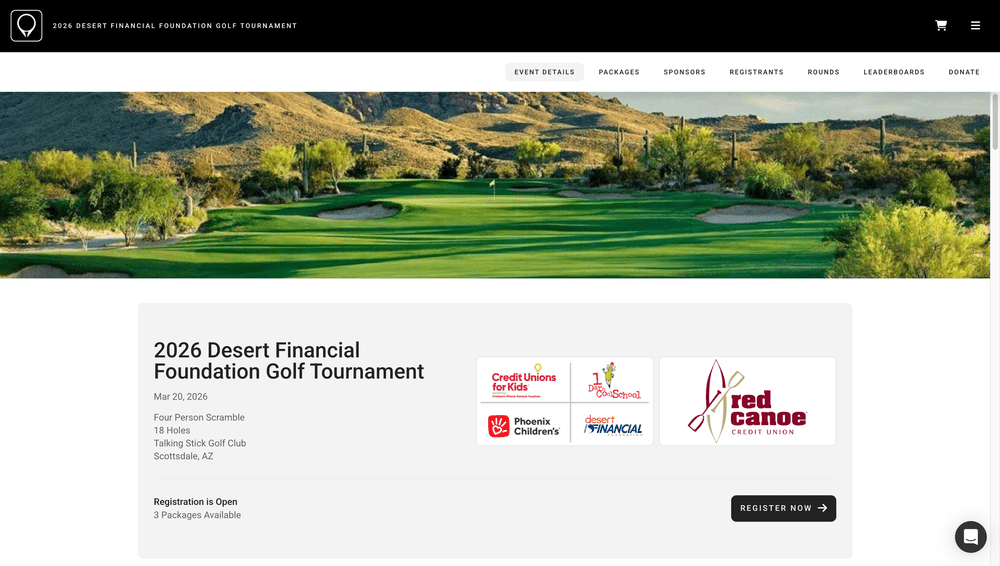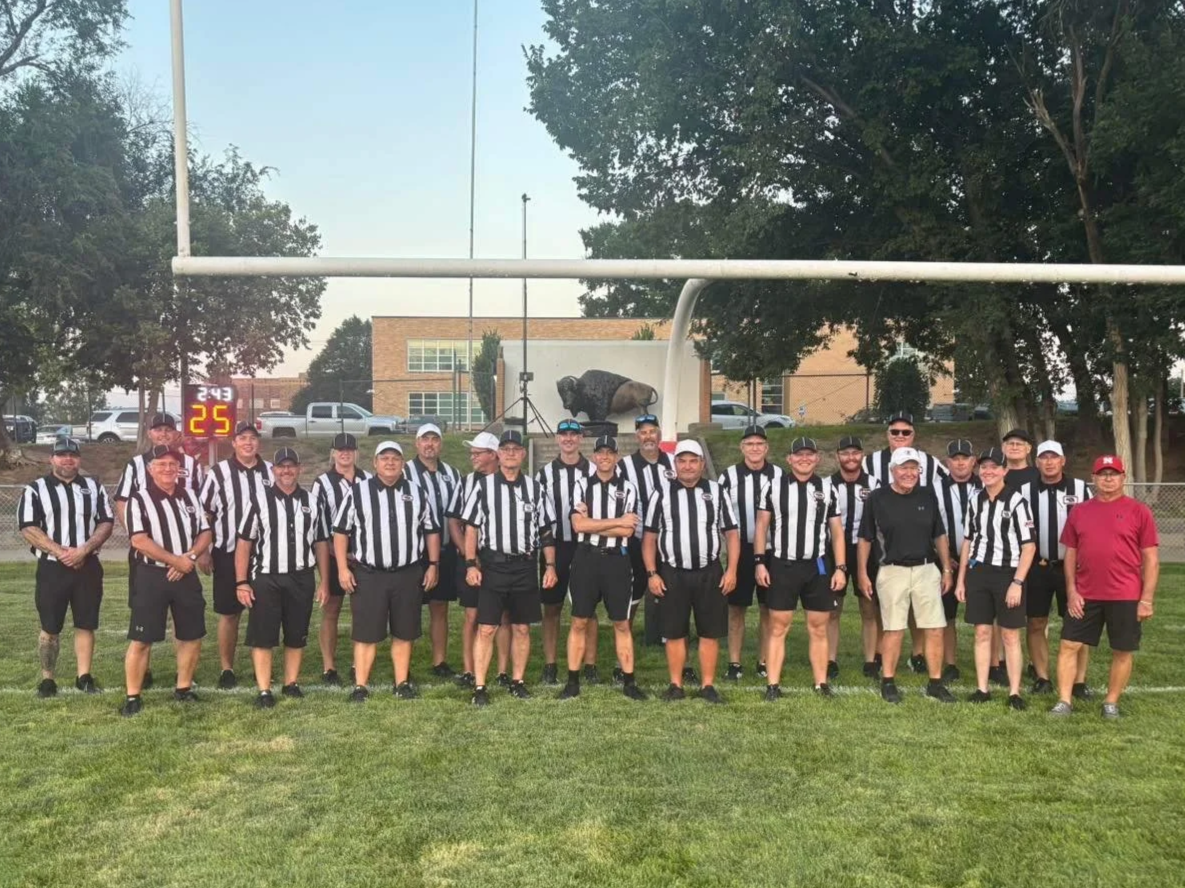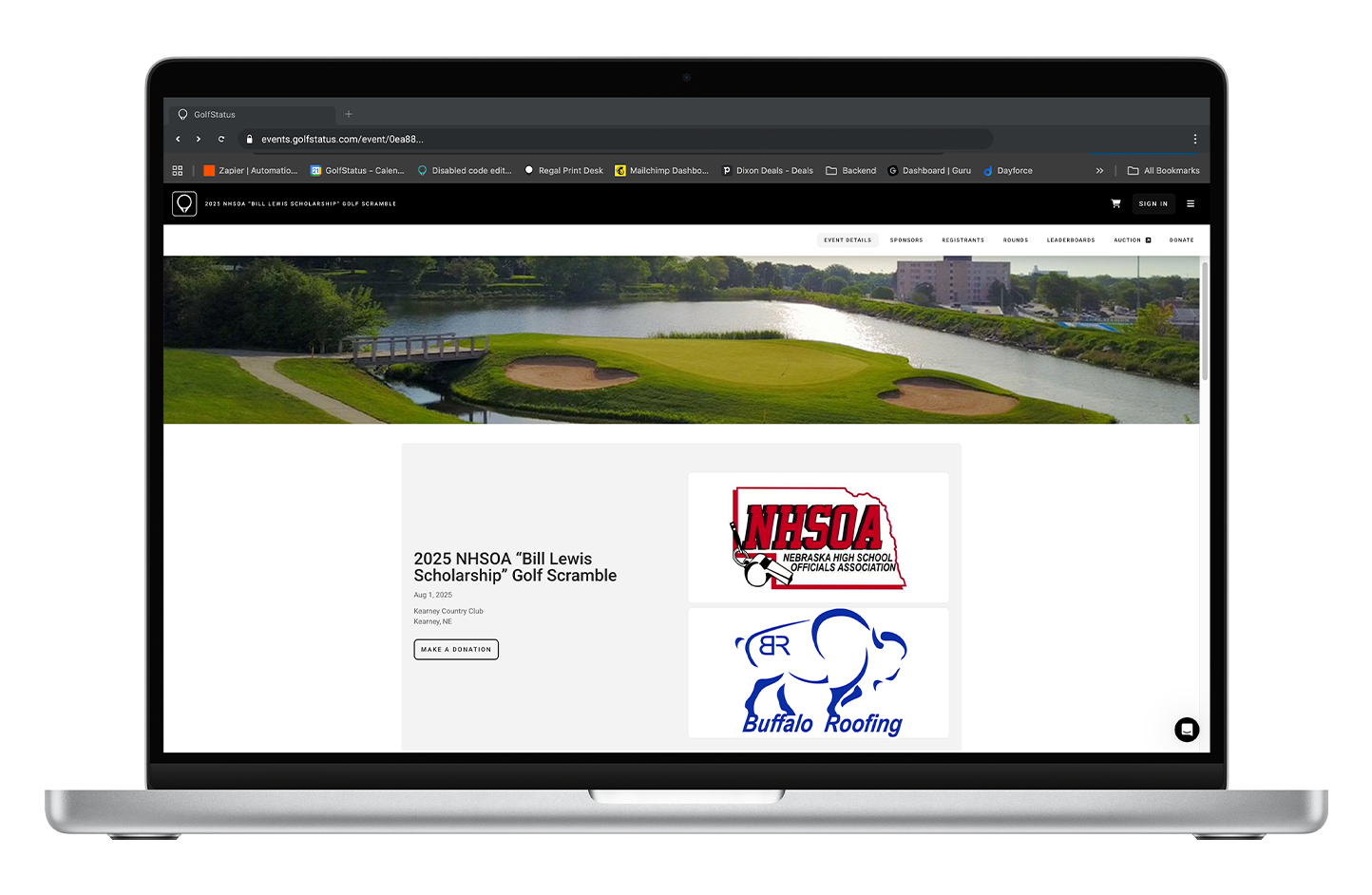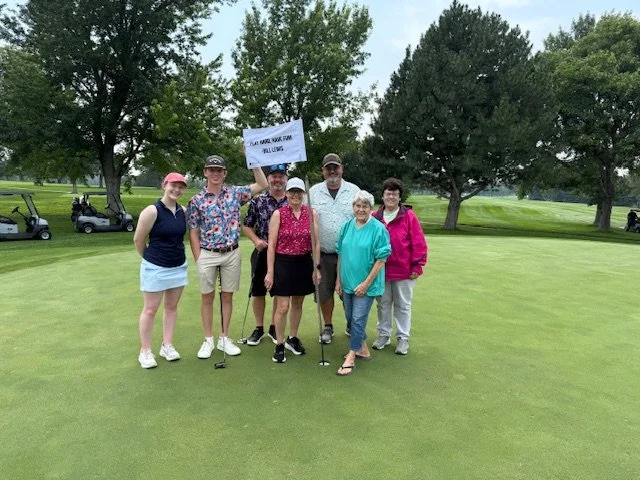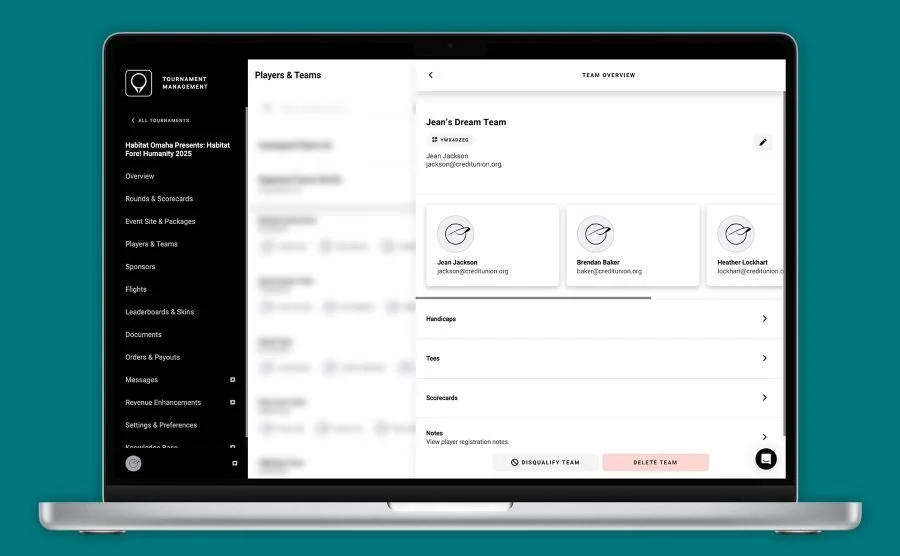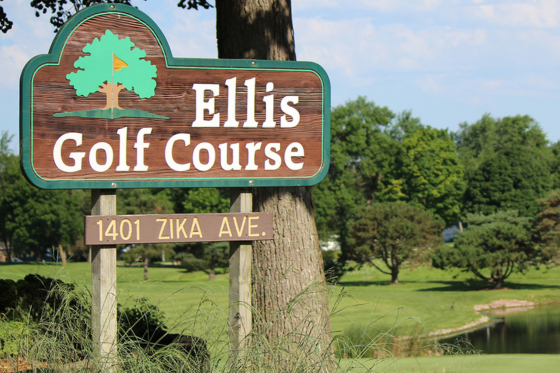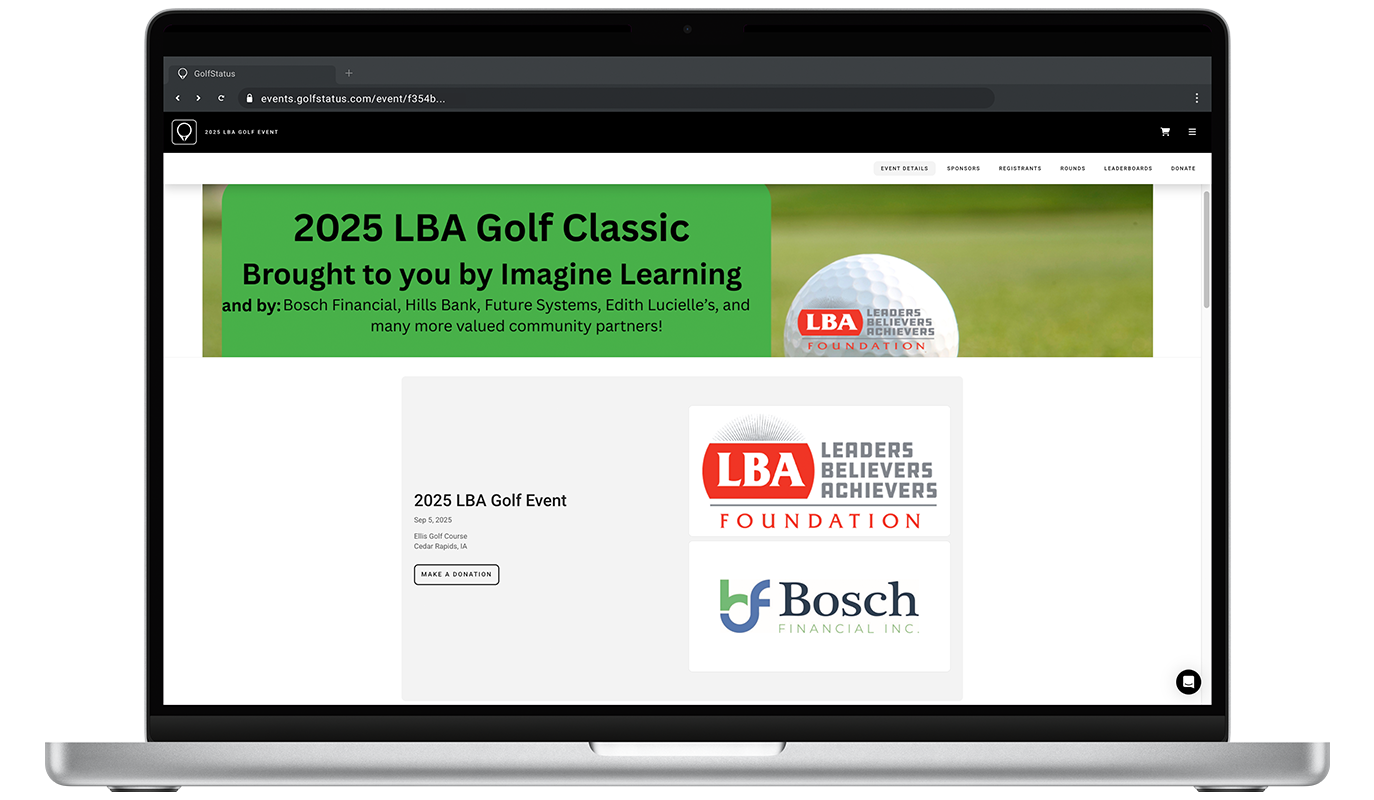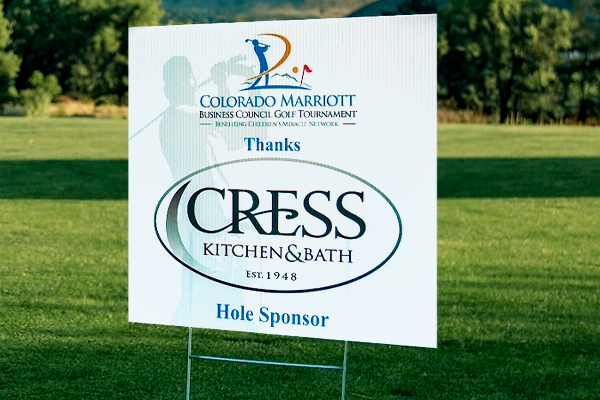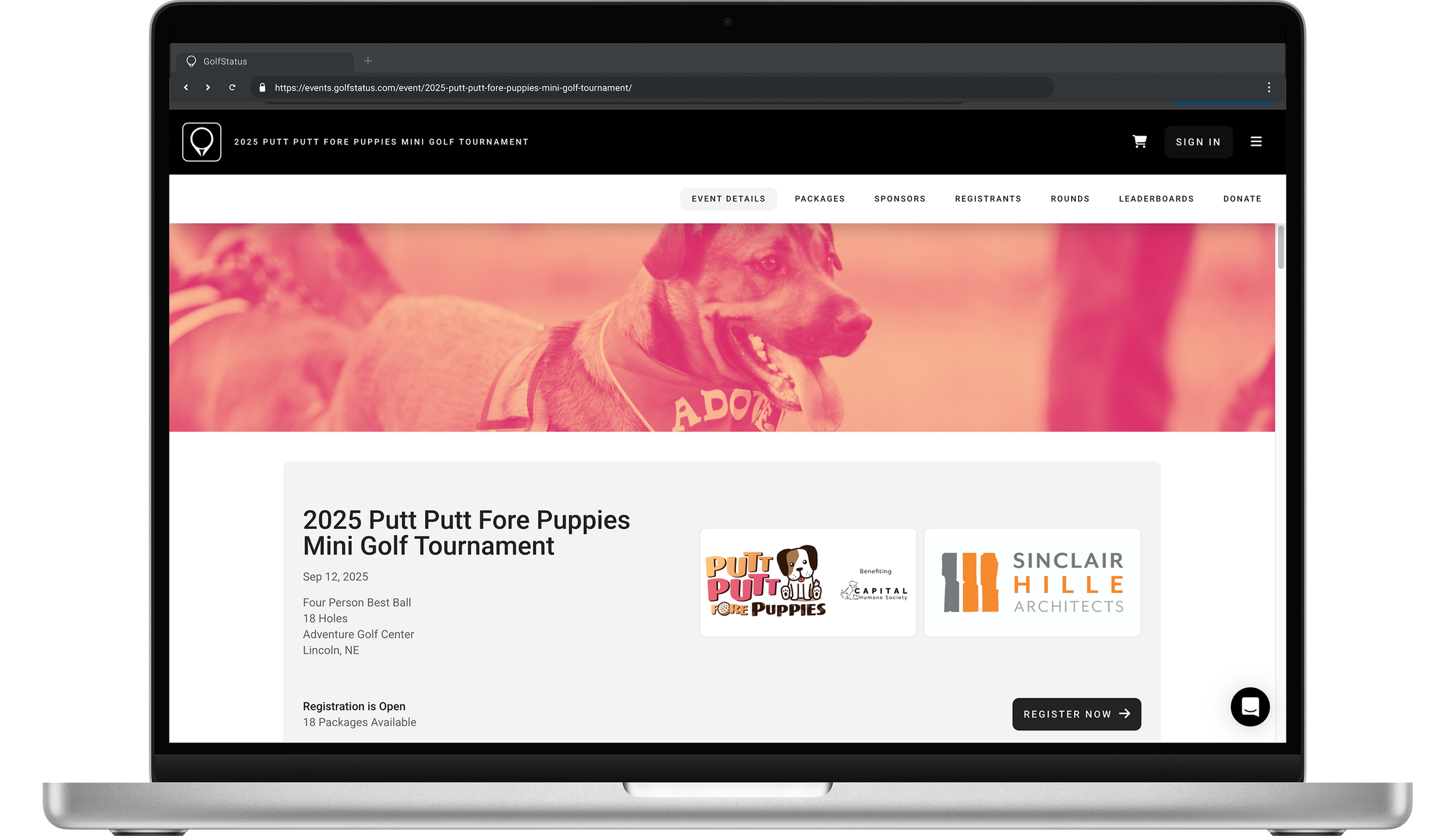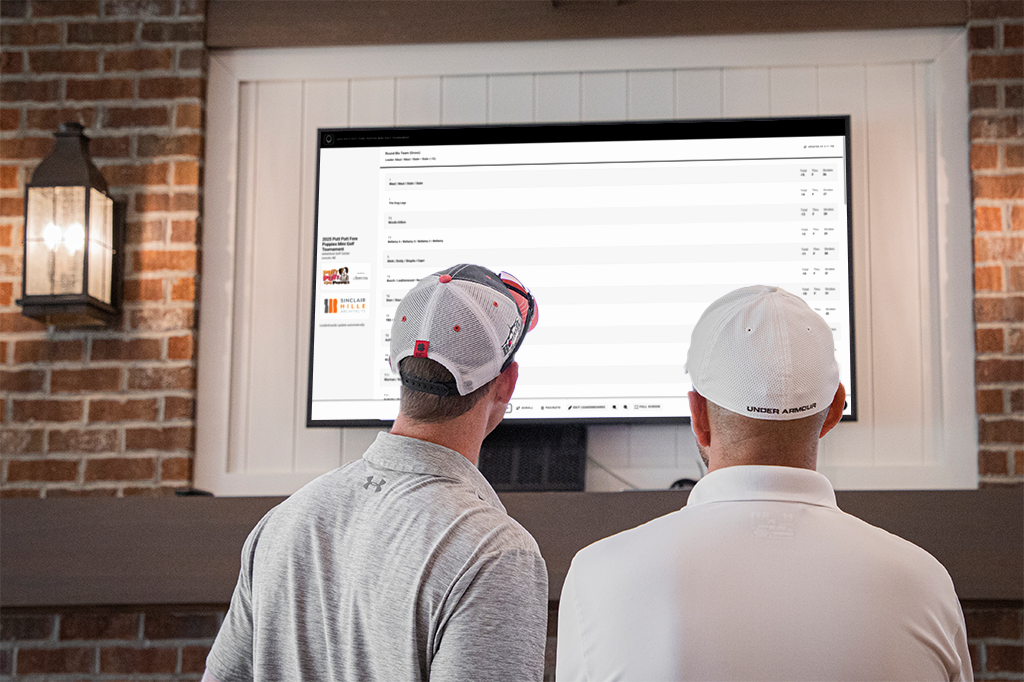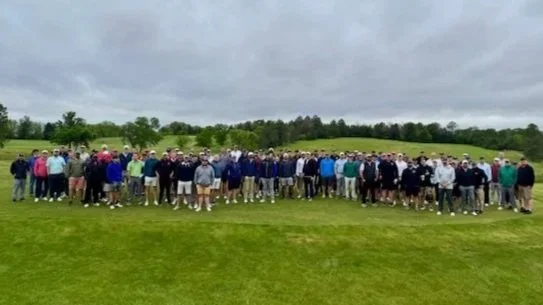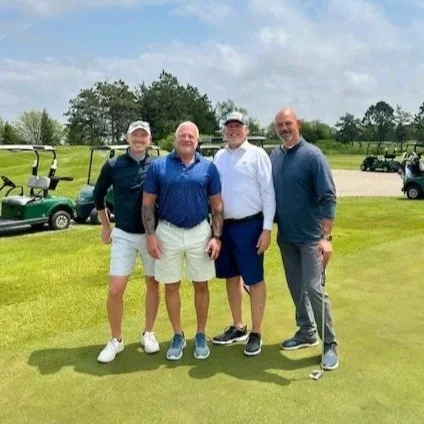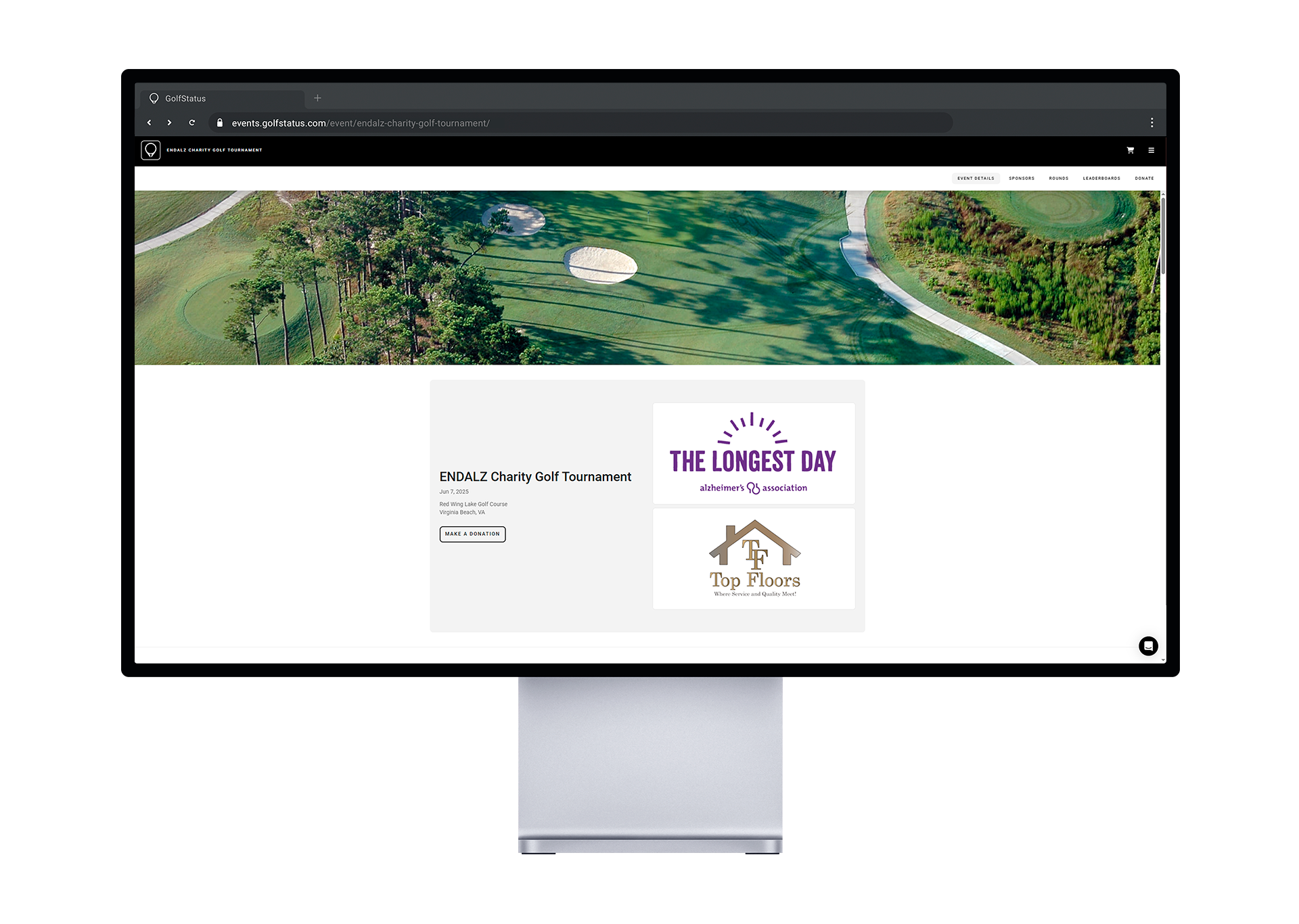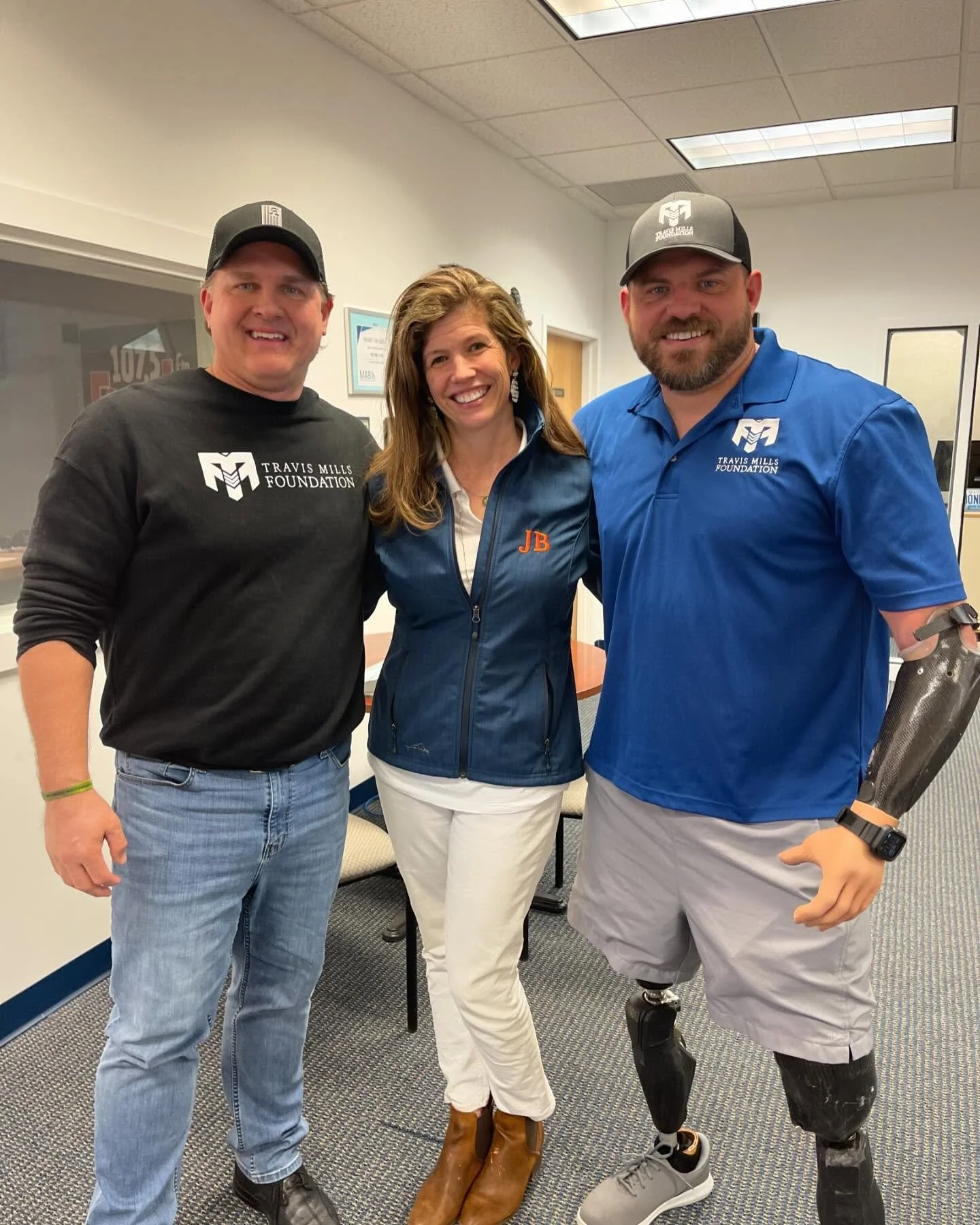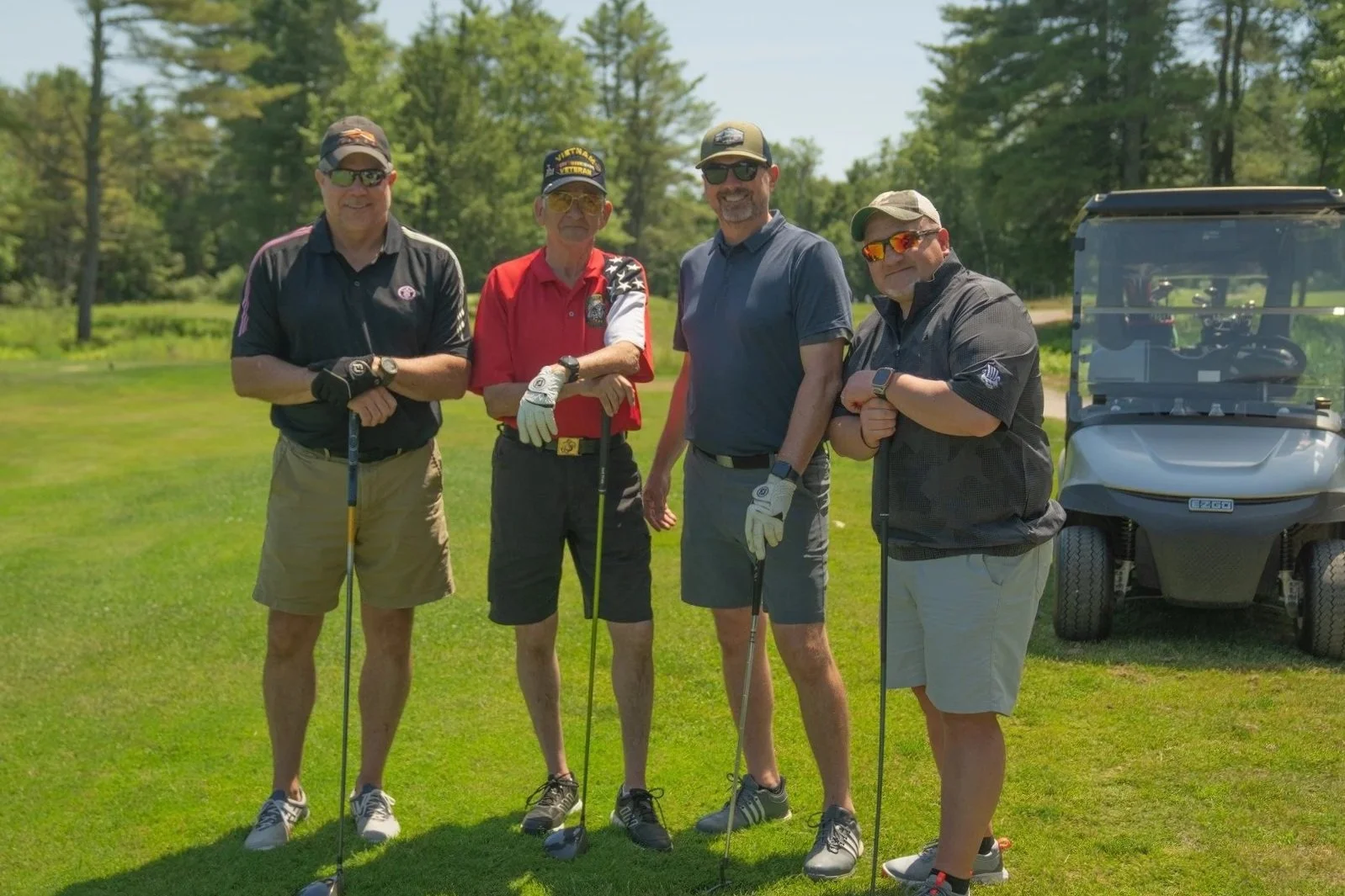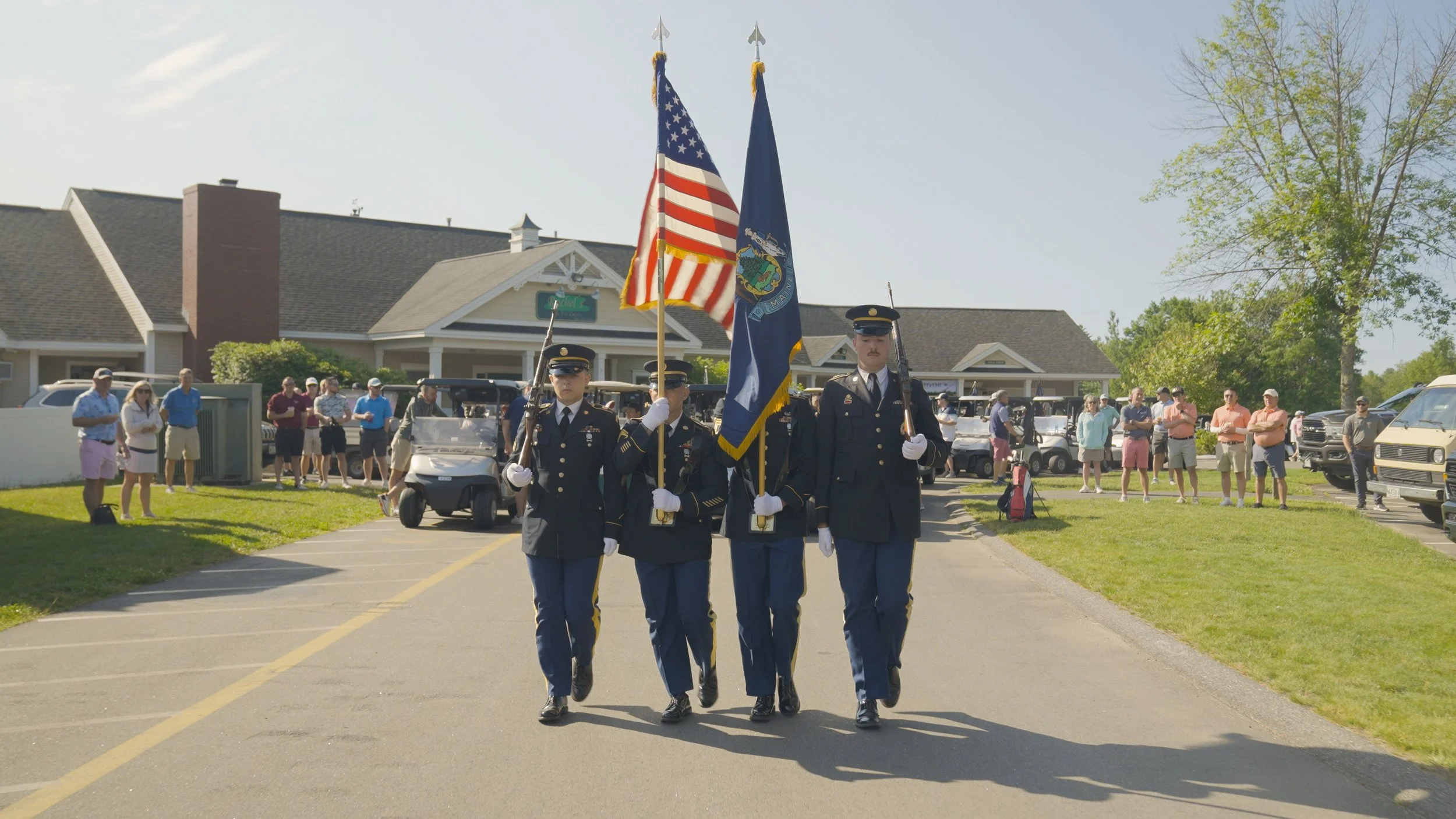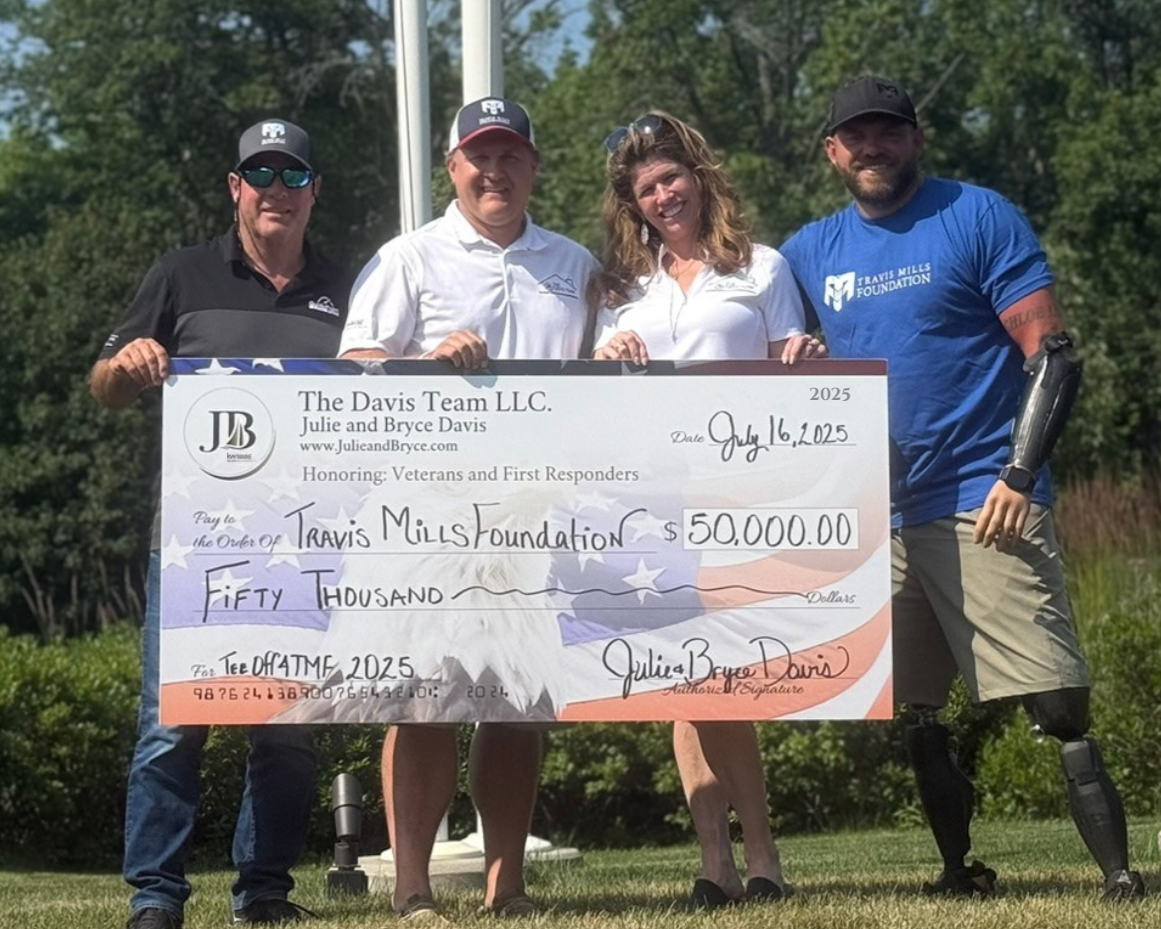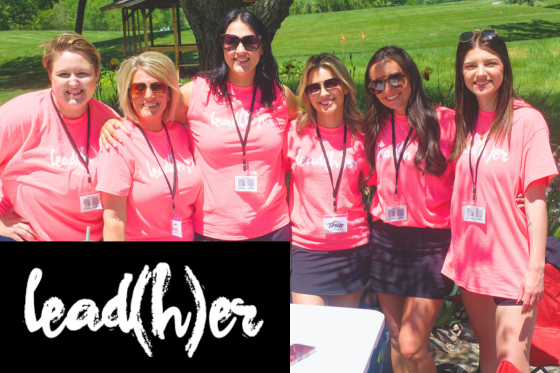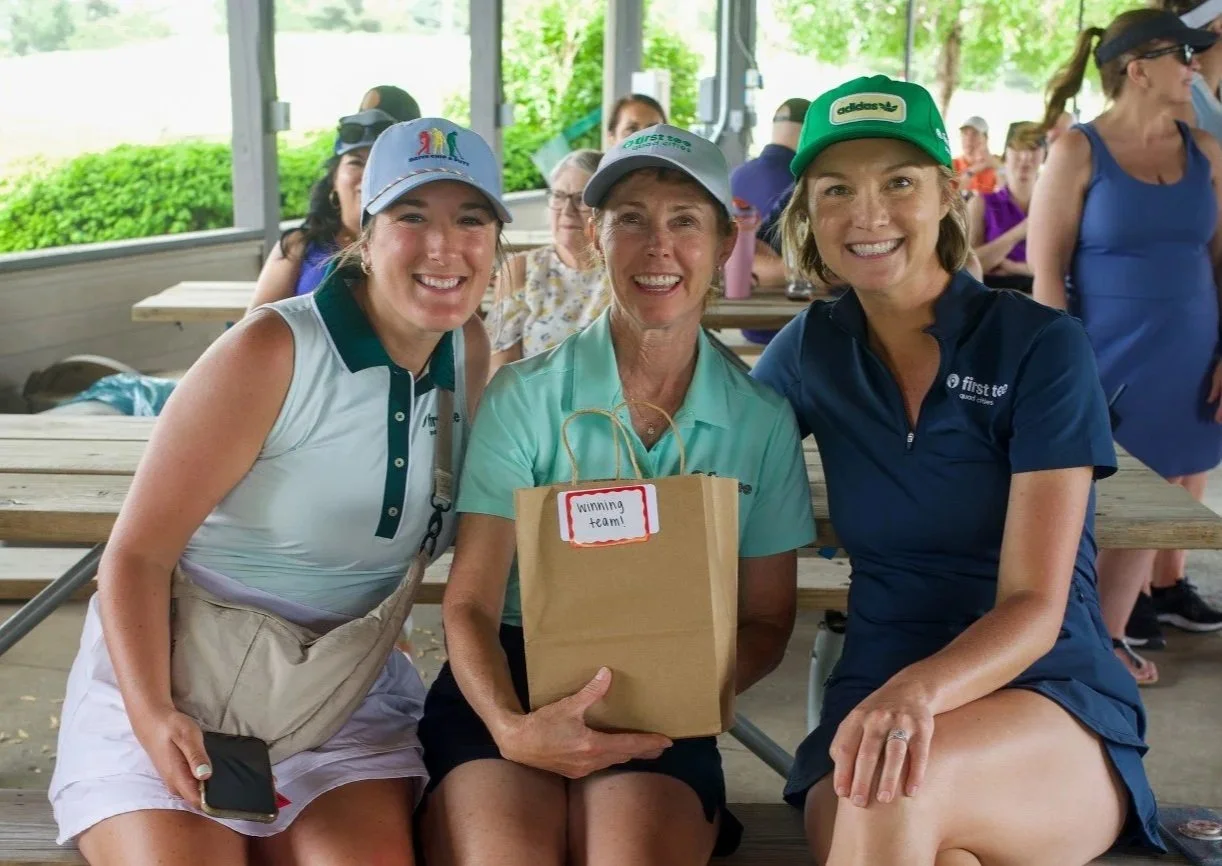by Jen Wemhoff, Communications Manager at GolfStatus
Registration is the first interaction many golfers and sponsors have with your charity golf tournament, so a cumbersome registration process may turn some people off from participating. An easy way to make a good first impression is to offer an intuitive, streamlined process that uses a robust online registration form.
Registration is the first interaction golfers may have with your golf fundraiser.
This guide answers your FAQs about golf tournament registration forms, including how to leverage a golf tournament management platform for the best possible experience.
table of contents
FAQs About Golf Tournament Registration Forms
How do I get our golf tournament registration form out to golfers?
Instead of relying on direct mail to distribute paper registration forms, start by choosing a golf-specific event management software that includes a professional, polished golf tournament website complete with online registration.
The website is the home base of your tournament, where golfers and sponsors can go to learn more about your organization and submit their registration. All of your tournament’s promotion should direct people to your event website, including email campaigns, social media, newsletters, your organization’s website, and printed flyers or invitations (using a QR code).
Much of the information that typically appears on paper registration forms can be added to the event website, such as:
Event information. The tournament’s date, time, host golf facility name, and facility address should appear prominently on your tournament’s website.
Tournament and/or organization branding. Include the tournament logo if you have one, as well as your organization’s logo and brand colors when appropriate.
Format and scoring. Be sure to mention the tournament’s format and how it will be scored, like a four-person 18-hole scramble or best ball round.
Tournament schedule. Include the event’s schedule, including specific times for registration, meals, shotgun start, and any other special events like a live or silent auction, banquet, or raffle drawing.
Information about contests or games. Highlight any hole-in-one contests and their corresponding prizes, on-course games or challenges, and add-ons like mulligans.
Policies. Include information about policies related to inclement weather, refunds, media rights, alcohol use, conduct guidelines, etc.
Golf facility logo (optional). If your tournament is being held at a high-end, prestigious golf facility, including the logo on the website might help attract golfers.
What fields should my golf tournament registration form include?
Golfers are prime candidates for donors, so it’s crucial that you capture complete, accurate contact information for each golfer to include in your donor database. Include the following form fields:
Name
Address
Email address
Phone number
Sponsor information
When sponsors register, your golf tournament form should include fields to upload logos and share website links and messaging.
You’ll also want to ask for additional event specifics on your registration form, such as:
Dietary restrictions or preferences. If you’re providing a meal, you’ll want to accommodate any restrictions or preferences.
Apparel size. Many tournaments include t-shirts, polos, or other apparel items with registration or as a player gift.
Payment information. Instead of relying on paper forms that include cash, checks, or handwritten credit card information, an online form should be equipped with secure payment processing. Golfers submit their payment information when they register, automatically receiving a receipt and confirmation, eliminating manual processes and data entry errors.
With online registration forms, golfer and sponsor registration information can be easily accessed and managed in the software’s back end. There’s no need to bounce between paper forms, emails, information from phone calls, or spreadsheets—it’s all in one place.
Using an online registration form as part of a robust golf tournament management platform is a game-changer for tournament organizers, golfers, and sponsors.
What other information should we include on our golf tournament registration form?
Using an event management platform built for golf to power your registration form makes it seamless to collect and manage golf tournament-specific information, like:
GHIN number. This is a unique ID for golfers in the Golf Handicap Information Network that tracks golf scores to calculate a handicap.
Handicap. A handicap is a number that reflects how many strokes above par a golfer might play.
Team pairing preferences. Golfers may want to be paired with friends, family, or colleagues during the tournament.
Course preferences. Some golf facilities have more than one course, so it’s helpful to ask which course golfers would prefer to play on.
Tee time preferences. While most charity golf tournaments utilize a shotgun start, tee times are also an option. If yours offers tee times, be sure to collect that information during registration.
What are the benefits of using an online golf tournament registration form instead of a paper form?
You’ll save time and effort. Tournament planning teams can expect to save 30-40+ hours by utilizing online registration, freeing them up to focus on sponsorships, donations, and the overall tournament experience.
It eliminates manual processes. Instead of manually processing paper forms and payments, plus entering and re-entering data, everything is automated as soon as the golfer hits submit—data collection, payment processing, confirmation emails, and receipts.
You can better manage cash flow. Payments flow into the platform, where they’re held until you’re ready to request a payout. You can track tournament revenue in real-time and better project profit and loss.
It’s easier to upsell. Include add-ons like mulligans, on-course game entry, merchandise sales, and raffle tickets in your registration process, so golfers can simply click to add them to their cart instead of hassling with cash on tournament day.
You can track inventory in real-time. When they visit your event site to register, golfers and sponsors can see exactly how many packages are available. In the back end, organizers can utilize waitlists if necessary.
How do we create our own golf tournament registration form?
It’s easy! Get started with a tournament management software like GolfStatus and build a tournament, event website, and registration form in minutes. Simply plug your tournament information into the software, add logos and graphics, set packages and pricing, and determine form fields. Share the tournament website link with your networks as soon as the site is live, and you can start collecting registrations and selling sponsorships right away.
Best of all, you’re not on your own! GolfStatus’ team of golf fundraising experts is there to help every step of the way, from building your registration form to going live with your website to answering questions.
Sample Golf Tournament Registration Form
Using an online golf tournament registration form and an event website are game-changers for your fundraiser.
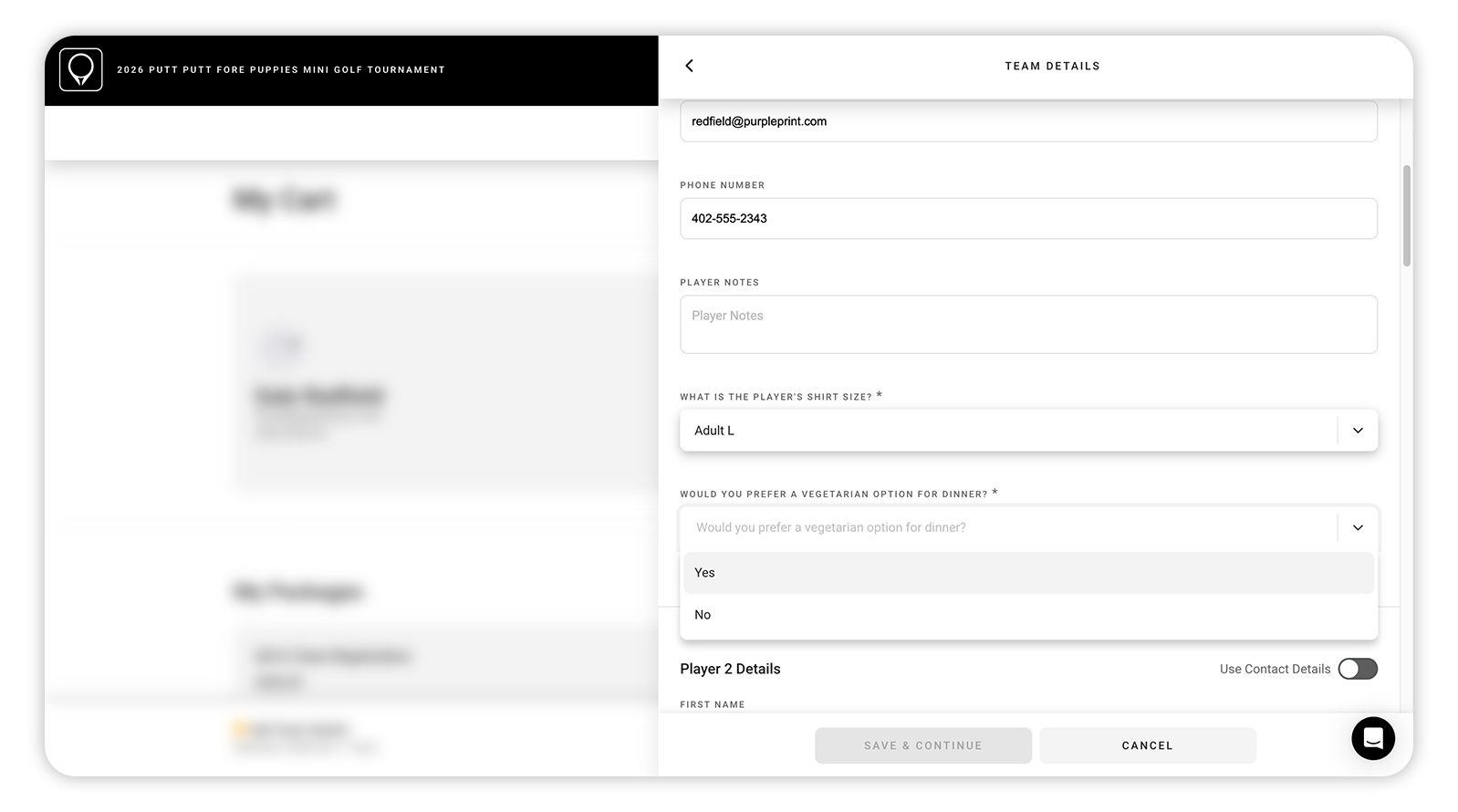
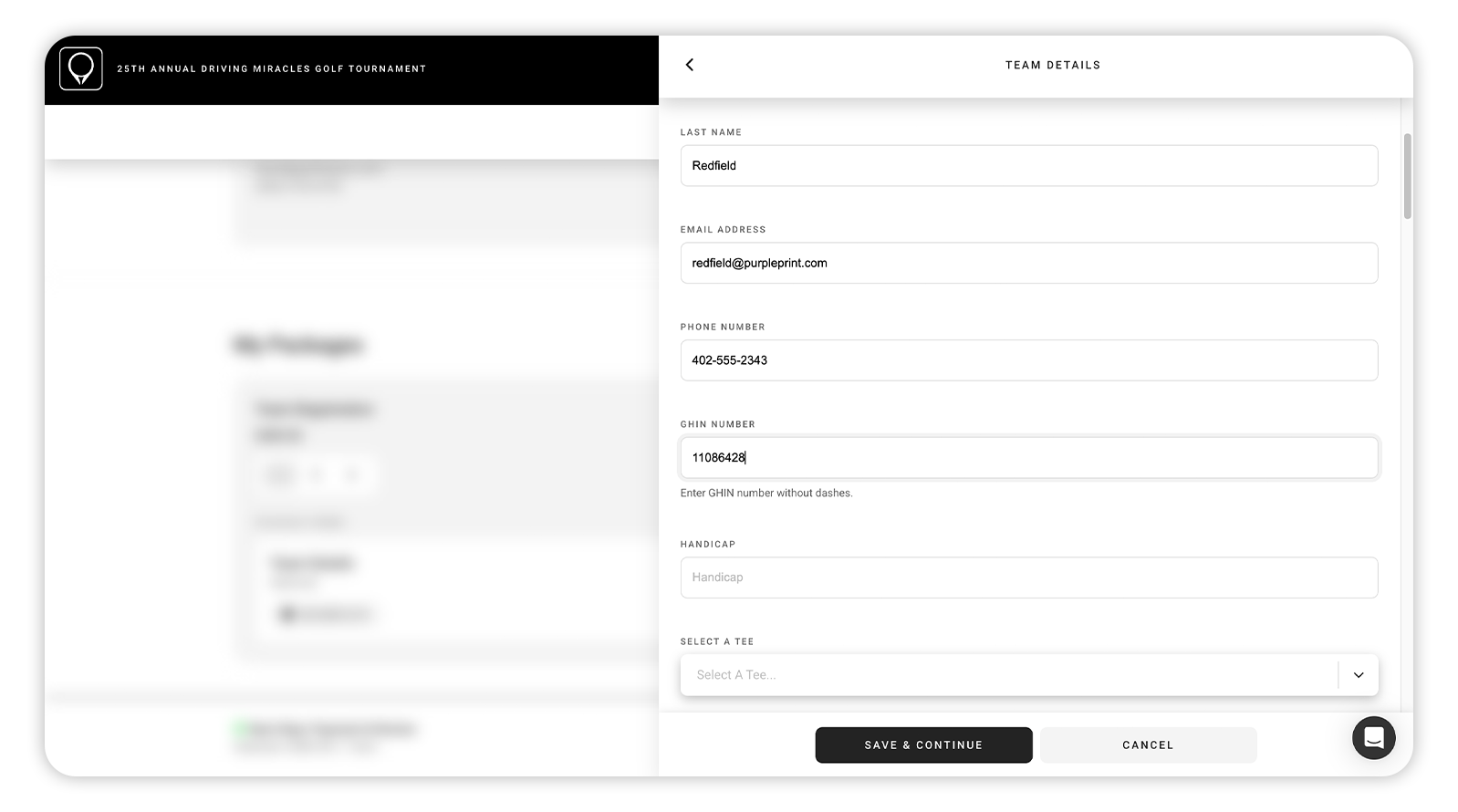
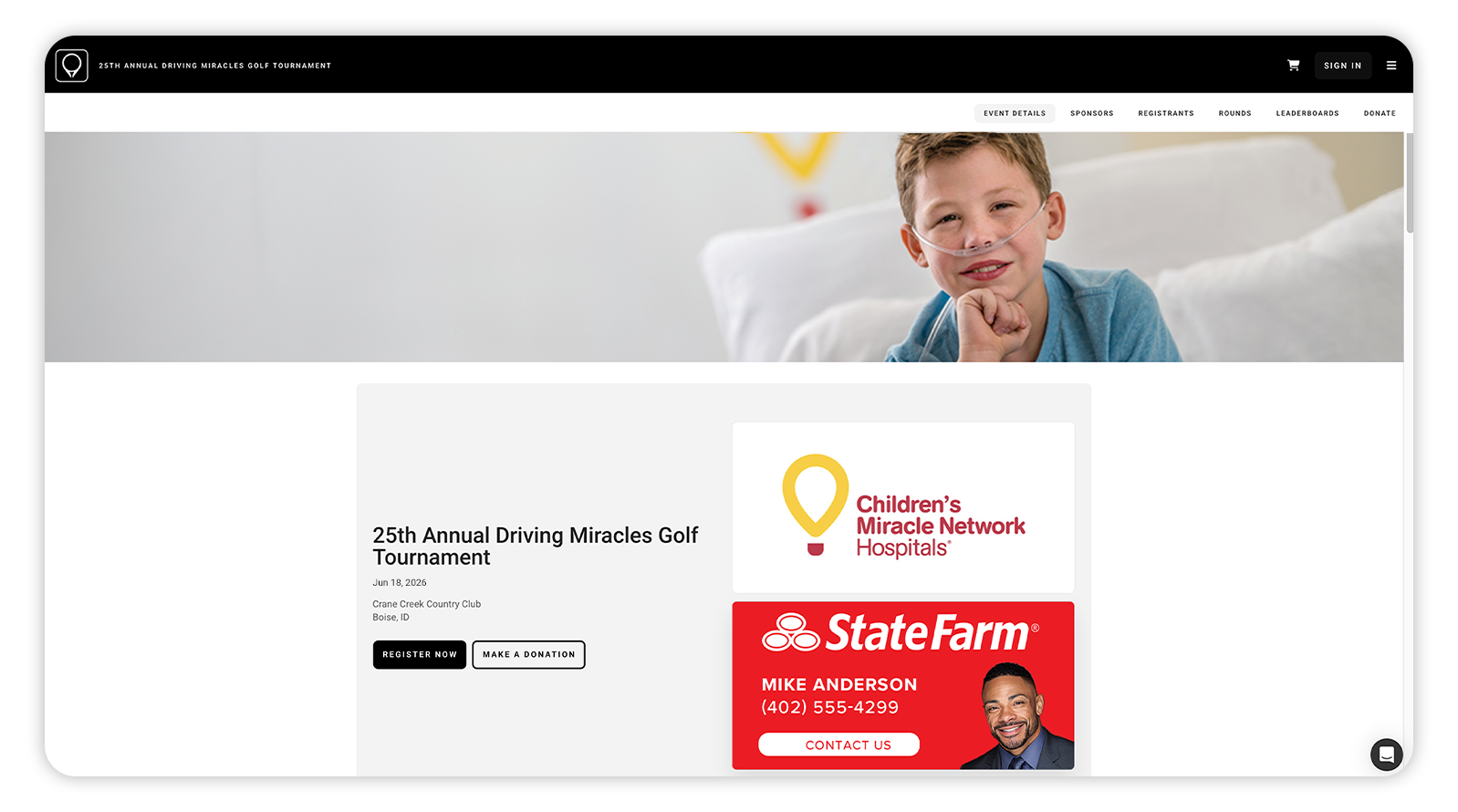
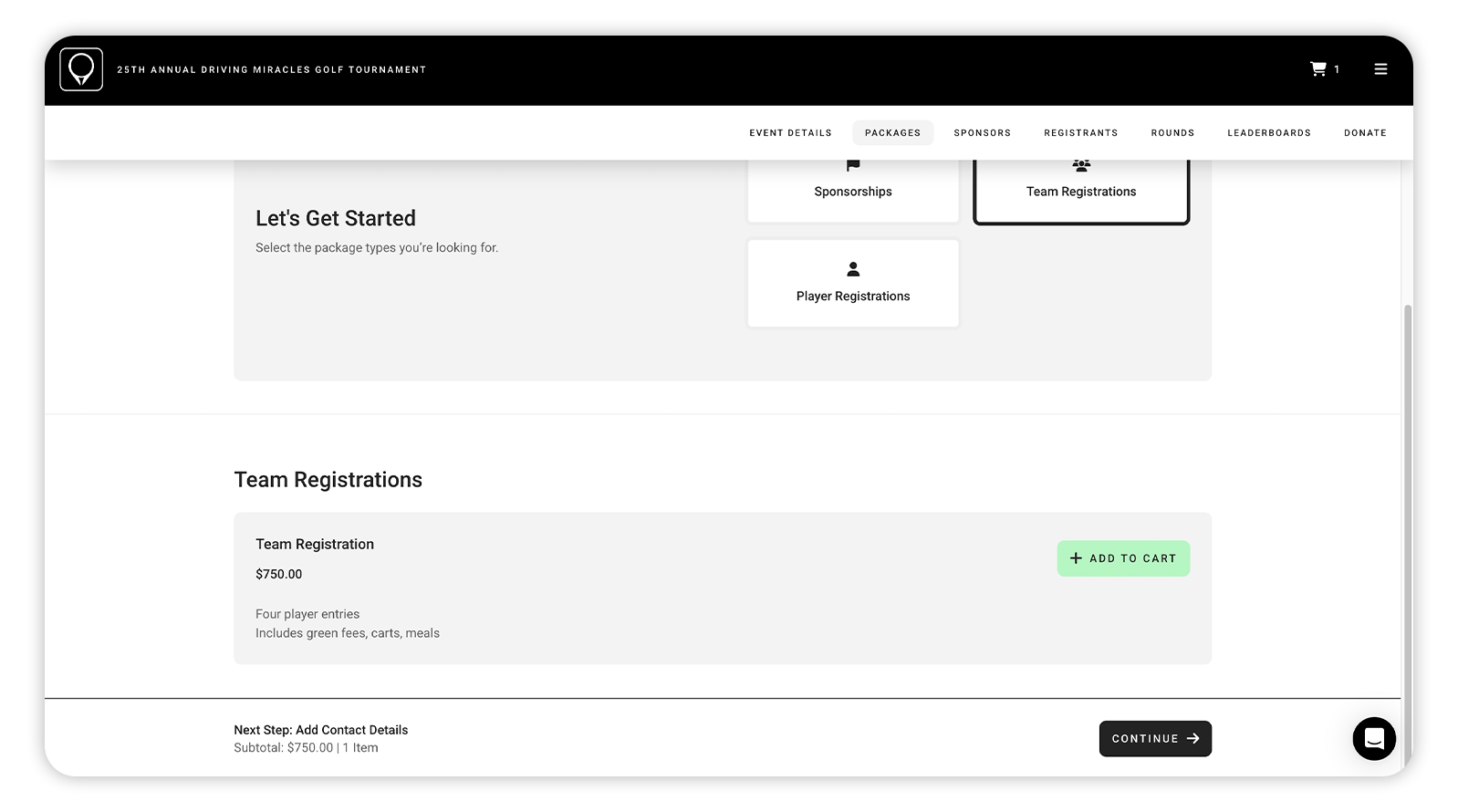
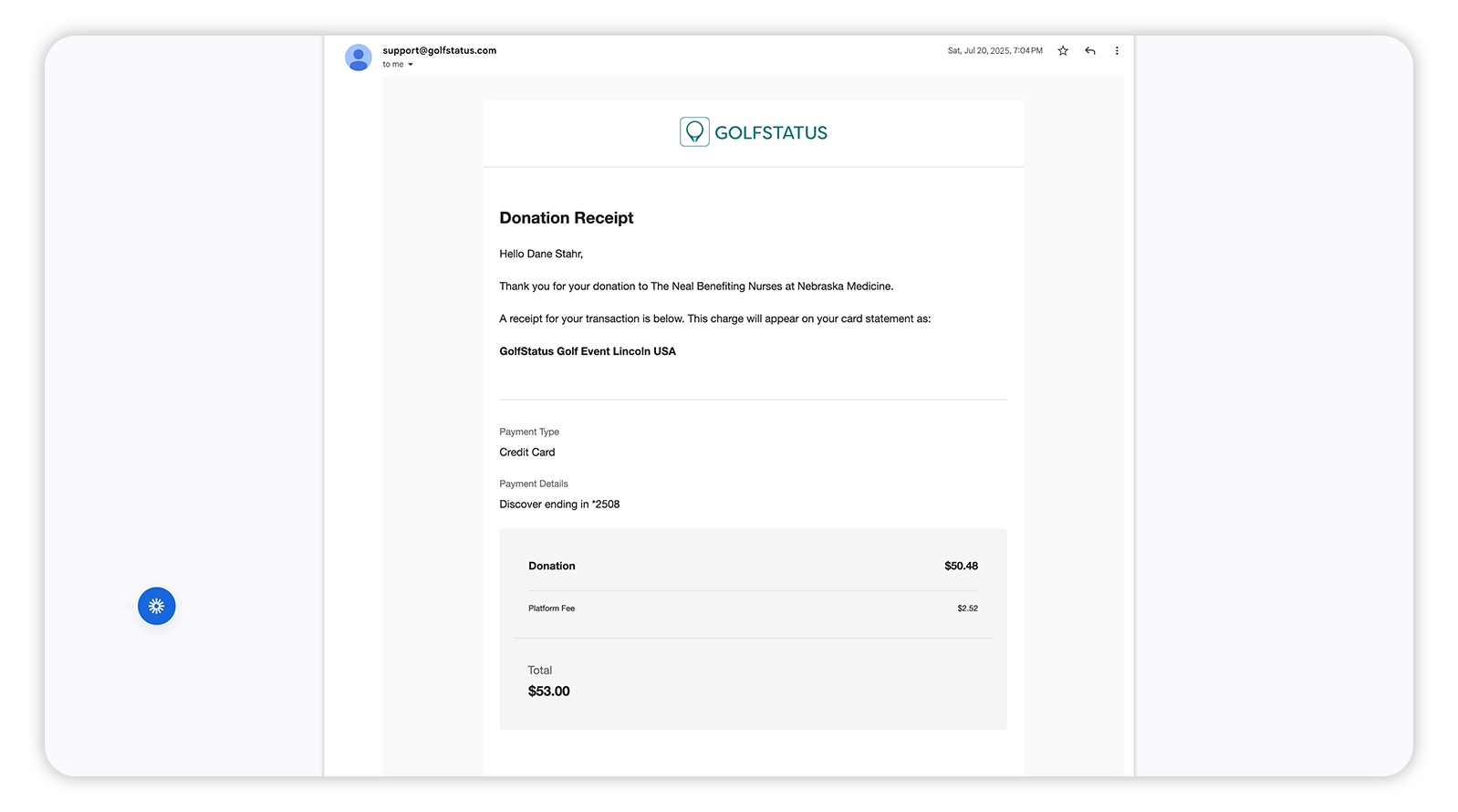
Sample Websites With Golf Tournament Registration Forms
AG Foundation Annual Golf Classic
17th Annual Chenega Golf Invitational
Desert Financial Golf Tournament
Final Thoughts
Your golf tournament registration form does more than just collect names and payments. A clean, intuitive online registration experience signals professionalism, builds trust with golfers and sponsors, and helps your tournament start strong.
By using a golf-specific event management platform to power your golf tournament registration form, you simplify the process, reduce manual work, and gain real-time visibility into registrations and revenue. From capturing donor data and managing sponsorships to selling add-ons and tracking inventory, everything lives in one place—saving your team valuable time and minimizing tournament-day headaches. A well-built golf tournament registration form helps you work smarter and creates a better experience for golfers and sponsors.
About the Author
Jen Wemhoff - Communications Manager at GolfStatus
Jen Wemhoff accidentally discovered her passion for nonprofits in college. An internship while earning a degree in Communications from Doane University led to a 20 year career in the nonprofit sector, where she found a strong desire to be part of something bigger than herself. Her vast nonprofit experience includes roles in marketing, fundraising, and direct programming. When Jen came to GolfStatus as Communications Manager in 2020, she was struck by the power of the sport to raise money to power nonprofit missions. She tells GolfStatus’s story across platforms and channels and develops educational tools and resources to help nonprofits tap into golf’s giving power. Jen, her husband, and two daughters call Lincoln, Nebraska home.



